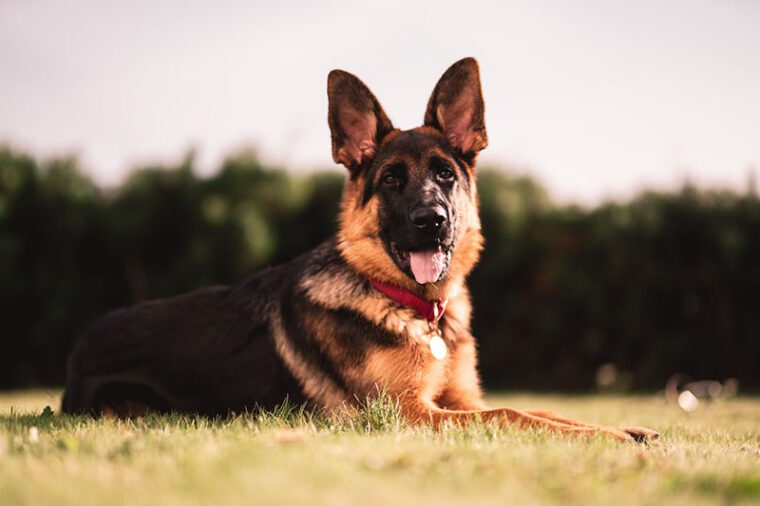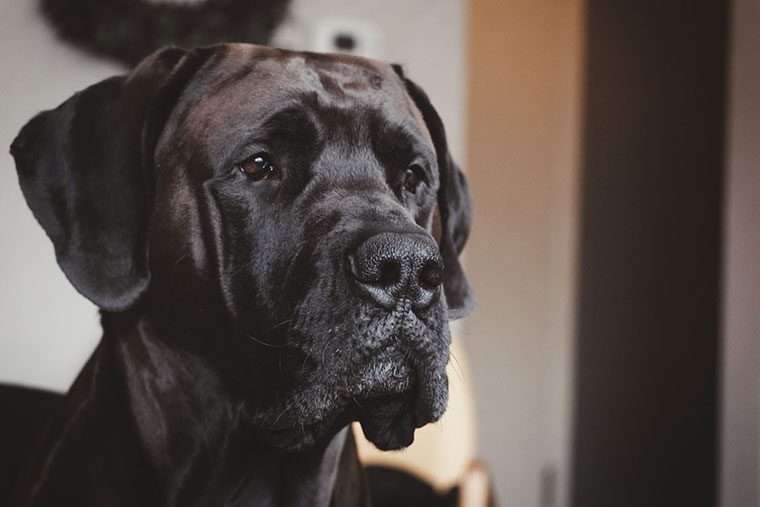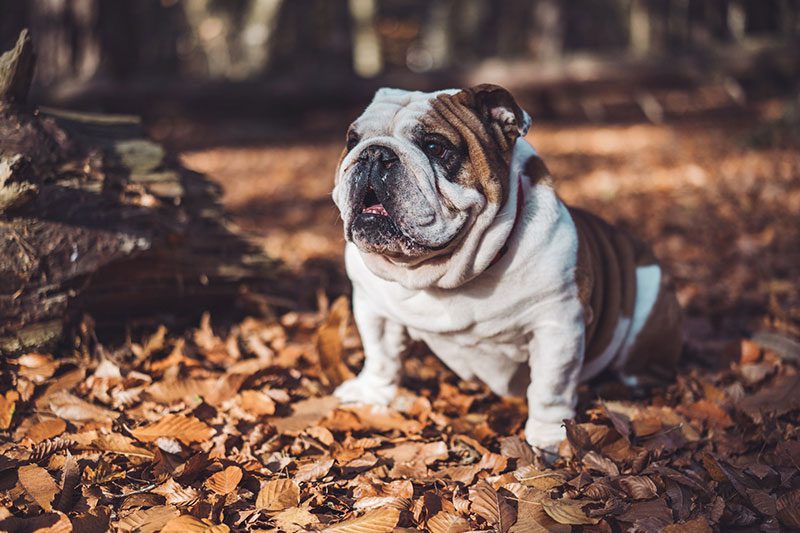Hip dysplasia (HD) is a condition that can cause pain and lameness. Also known as congenital dysplasia of the hip (CDH), it is a genetic, developmental condition in which the head of the thigh bone does not fit snugly into the hip joint. It is classified as a developmental abnormality of the pelvis where abnormal formation and development of cartilage prevent normal movement between bones.
It’s most common in large-breed dogs, but small breeds also get it. If you have a dog that’s been diagnosed with hip dysplasia or could be at risk for developing it, there are things you can do now to help your pup stay healthy and happy for years to come.
While hip dysplasia can be an issue in any dog breed, some have a higher incidence of the condition. Here are some of the dog breeds that are prone to hip dysplasia.
English Bulldog
If your English bulldog has hip dysplasia, the symptoms may include limping, a “bunny-hopping” gait and pain when the dog is touched in the hip area. In severe cases of HD, dogs become depressed and cannot walk normally.
The good news is that symptoms can be reduced with medication or surgery. However, it’s important to note that there are different types of surgery for this condition, depending on whether you want to preserve functionality.

Alexander Naglestad on Unsplash
German Shepherd
German Shepherds are prone to hip dysplasia. Although not the only breed of dog that suffers from HD, they are at a higher risk than other breeds thanks to their large frame and strong musculature.
The disease is caused by malformation within the hip joint itself, which may be inherited or developed later in life due to abnormal skeletal growth as a puppy grows into an adult. This can be treated with surgery (if caught early enough), followed by medication for pain relief until it heals completely after several months. You can also choose other means of treatment, such as WiggleLess support. Left untreated, however, canine HD can cause severe damage within your pet’s hips leading up through its entire body, with severe lameness issues causing chronic pain levels to the point where your beloved four-legged friend can barely move without your help.

Birgl on Pixabay
Golden Retriever
In addition to being prone to hip dysplasia, golden retrievers are susceptible to eye problems. The most common problem is cataracts, where the lens in the eye becomes cloudy and impairs vision. If you notice that your dog’s vision has become blurry or cannot see as far as they used to, it could be a sign of cataracts. As with HD, many dogs develop these issues by age two. You can help treat these conditions by feeding them dog food specially formulated for them.

Keenan Barber on Unsplash
Mastiff
Mastiffs are large, powerful dogs that were initially bred to guard livestock. They have a calm, docile temperament and loyalty to their owners. However, this breed is prone to HD.
Hip dysplasia can be caused by genetics, diet and exercise habits during puppyhood (puppy growth and development), obesity or obesity-related conditions like heart disease or diabetes mellitus. The genes responsible for the occurrence of hip dysplasia are not yet known; however, DNA tests can be done at an early age to determine whether a puppy has the potential to develop the condition later in life.

Kevin Seibel on Unsplash
Rottweiler
The Rottweiler is a large dog with a broad, deep chest and sturdy limbs. The head is powerful and has a medium-length muzzle with parallel planes and a well-defined stop. Rottweilers have black noses that do not fade or turn pink on hot days. Their teeth meet in either a scissors bite or a pincer bite (normally a scissor). They are known for their remarkable strength, endurance, agility and courage.
Dogs like the Rottweiler, with hereditary disorders like CDH, are more likely to suffer from other disorders, including patellar luxation (kneecap dislocation), osteoarthritis or degenerative myelopathy. Owners need to be aware of these disorders and take steps toward prevention before things get worse.
Conclusion
Hip dysplasia can be a serious issue for some dogs. Still, it’s often manageable with the right treatment. If you have concerns about your dog’s hip dysplasia, talk to a veterinarian about the available options.


